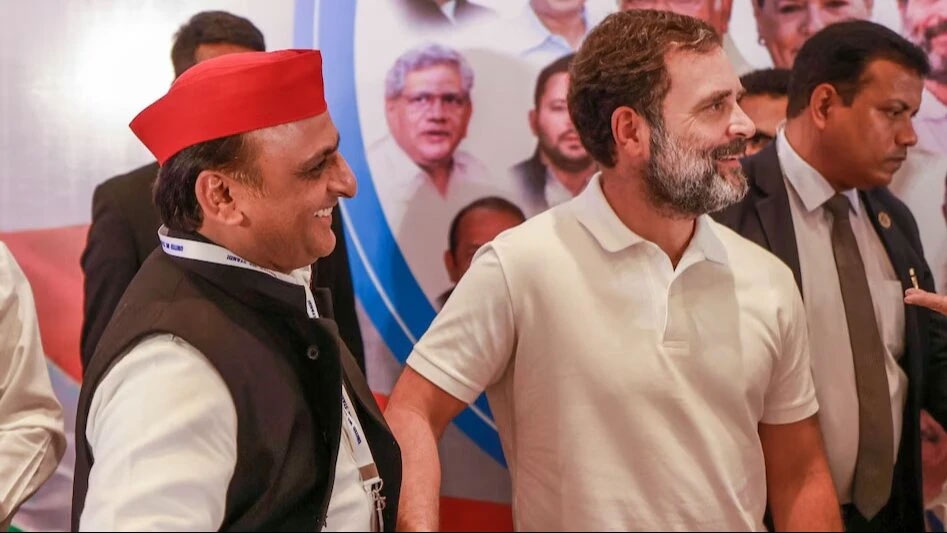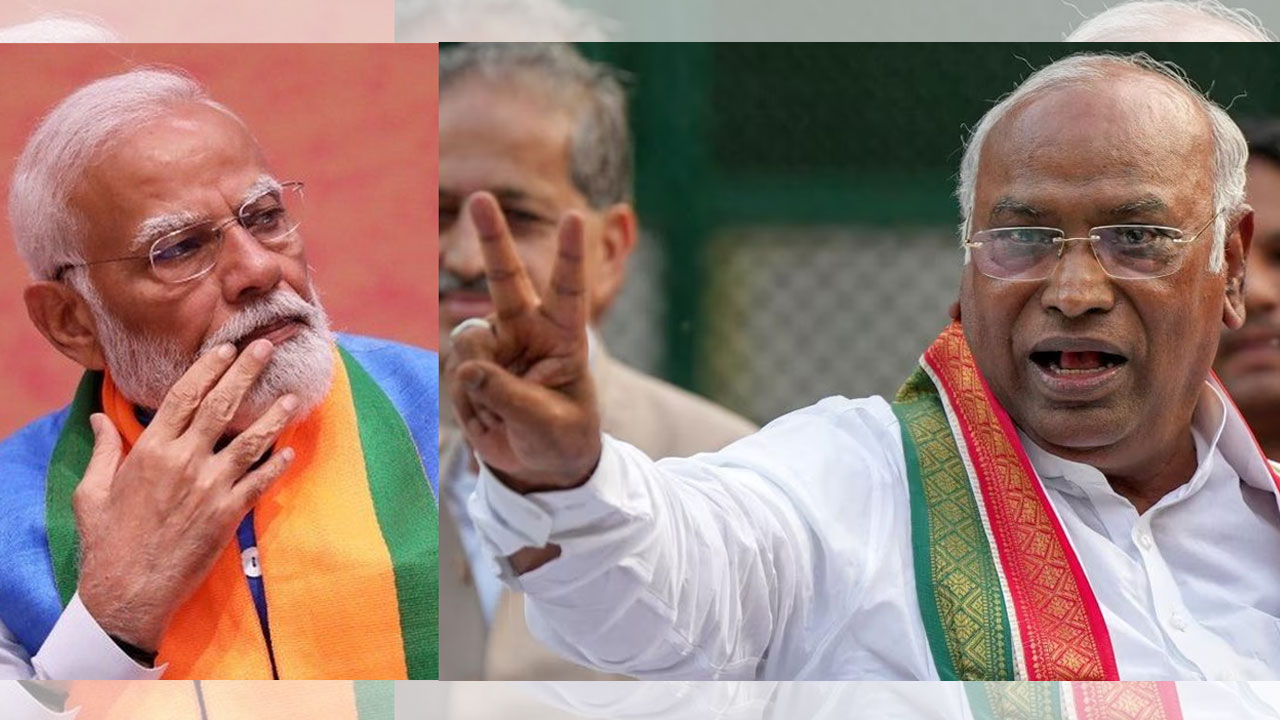I recently received a call from one of my friends, who is an assistant professor at a private university. The professor-friend said, “I am sending you a draft [letter]. Please read it and sign.”
“What is it about?” I asked. My professor-friend explained that the letter was an appeal to intellectuals, artists and members of civil society to join the Indian National Developmental Inclusive Alliance (INDIA), as it stood for social justice.
There is a background to the abrupt circulation of this letter. In the recently-concluded general elections, the Congress-led Indian INDIA performed well and bagged as many as 232 seats. But its biggest achievement was reducing the seats of the right-wing Bharatiya Janata Party (BJP) from 303 to 240. Moreover, it was the combined efforts of INDIA that stopped “invincible” Narendra Modi from taking his party, the BJP, beyond the half-way mark of 272. As a result, Modi has to rely on his allies for support for the next five years. The opposition camp has read these election results as the beginning of the end of the Modi era and the onset of the revival of the secular forces.
Reading the “bright” prospect of INDIA, the professor-friend and his team have been canvassing support for INDIA among intellectuals and civil-society members. He and his team are trying everything to project themselves as intellectuals supporting secular political parties.
During our brief conversation over the phone, the professor-friend tried to recruit me for this campaign. He gave several half-baked arguments to convince me about the need to stand with INDIA.
After a while, he even asked me to circulate the draft letter among my other friends and enlist more support. I wanted to give him a piece of my mind, but I held back and said, “Give me some time; I will get back to you.”
My professor-friend, who has suddenly become a big “champion” of social justice and a great supporter of INDIA, was silent for the past 10 years. I never saw him speak up on public issues in the open. Even during our last conversation, he directly and indirectly gave me the unsolicited suggestion that, in academia, one should not be too outspoken on public issues. He was suggesting that I myself, and not the unfair government policy, was to blame for my not getting a permanent professorial position.
After the call, I thought for a long time. Several questions came to mind: why was such a letter not drafted before the elections in which INDIA did well? Had it been circulated earlier, INDIA might have got more votes from the intellectual classes. Or was he hoping for the Modi-led National Democratic Alliance (NDA) winning an overwhelming majority?

Equally valid is the question about where the supporters of such a campaign have been in the 10 years after Modi came to power in 2014. Have they publicly written and spoken up for justice in this period? I don’t recall any of them doing so. Have they ever spoken against the attacks on Dalits, minorities and women? They have maintained silence by labelling these issues “controversial”. Have they ever opposed anti-farmer laws? The answer would be a big no. Have they ever expressed their views on demonetization, Citizenship Amendment Act, and communalization of education and public spaces? No. They have refrained from speaking on political issues.
The so-called intellectuals, who are now gearing up to fight against the authoritarian regime of Modi, hardly resisted the authoritarian policies of the university administration. To get promotions and higher salaries, they turned sycophants. They did not even squeak against the wrong policies of the university for 10 years and did everything to remain in the good books of the right-wing administration and lobby. They have donned the robe of “radicals” now after the good showing of INDIA. This says a lot about the social character of the Indian intellectuals.
It appears that their campaign to enlist the support of intellectuals and members of civil society for the secular forces is primarily aimed at pushing themselves close to the top leadership of the opposition parties, including the Congress and the Samajwadi Party.
My professor-friend and his colleagues have been leading this campaign with the hope that before the close of the year, the opposition parties will be in power and they will reap the rewards.
This present crisis in public institutions is largely due to two reasons. First, the backward castes, Dalits, Adivasis and Muslims have been systematically excluded and the upper castes are disproportionately represented. Second, several corrupt practices were designed by the earlier regimes and have been perfected by the present regime.
Take the example of public universities. When the marginalized castes began to knock at the doors of public universities, these universities were weakened by cutting down on funds, promoting privatization of higher education as well as by lowering their standards through biased recruitment. The University of Delhi, which has been a premier university in the country, has been ruined by the right-wing government by doling out faculty positions to Rashtriya Swayamsevak Sangh (RSS) cadres. Now the secular cadres are waiting for their turn. The result of the General Elections 2024 has given them the confidence to emerge from their shells and make hay while the sun shines.
It is evident that the aim of professors and scholars at educational institutes is to safeguard and enhance their own careers. They have scant regard for social justice. If they see a prospect of quick gain, they change their language instantly. Since they are educated, they can play with words. They never admit that they are in the RSS camp because they want jobs and promotions. Instead, they speak in the language of “nation first” even while it is “me first” at the bottom of their hearts. The intellectuals in the secular camps are more refined. They use progressive language to hide their reactionary interests.
To me, Indian intellectuals are parasites. They are only concerned about their salary hikes. Irrespective of their economic ideology – which can be anything from socialism to neoliberalism – they are only concerned about self-preservation and guarding the interests of their family and caste members. I have seen a retired JNU professor of political science, who taught social welfare and the political thought of Dr B.R. Ambedkar, not hesitating to take an anti-Ambedkar stand as soon as he was given a top administrative post. The retired professor opposed the resistance of students who refused to pay university hostel electricity bill. The professor did not care that his lectures about the need to have free public education were not compatible with the policy of extracting money from students.
These examples show that the Indian intellectuals have no commitment to social change. Their talk of radicalism is at best the use of well-crafted language to lure the downtrodden. The Indian intellectuals change colours faster than chameleons and switch loyalties. For years, we have been fooled into believing that they practice what they preach.
They can give lectures on the social and political thought of Babasaheb Ambedkar while simultaneously practising casteism and maintaining a caste network in their private lives. It is a shortcoming of liberal political theory to ignore the feminist concern of “the private sphere being political”. The reason India has failed to produce quality research and transformative theories is that the upper-caste intellectuals tend to crush any idea that could possibly challenge their hegemony. That is why the Indian intellectuals show their true colours in the private realm, which remains largely depoliticized. Irrespective of their political and economic ideology, the Indian intellectuals identify and help the members of their own caste groups. That is why I am hesitant to even call the Indian intellectuals liberals. Since they use caste networks as ladders to success and promotions, they, in the eyes of the marginalized, can never be progressive. The Indian intellectuals have deftly used their caste network to exclude the marginalized groups from universities. Had it not been the case, the proportion of the OBC professors in central universities would not have been less than 5 per cent even when the Constitutionally mandated reservation to them is 27 per cent and the OBC population is estimated to be more than 50 per cent.
The Indian intellectuals are a gang of conservative, status-quoist, upper-caste elites. The elites are divided on the false binary of secular and communal. Such a trope is useful to invisibilize social power within society, particularly the caste dominance of the elite. Whether it is the communal alliance or the secular alliance, the leadership is in the hands of the upper castes. They often converge to protect the interests of their caste groups.
This is one of the reasons that the upper castes have failed to produce many organic intellectuals in India despite the fact that their proportion among intellectuals is at least five times more than their proportion in the population. The Indian intellectuals are in the habit of producing sterile research and promoting a gang of sycophants. They are mostly seen swaying to the winds of the power. No knowledge can be produced by this utterly reactionary group of intellectuals.
Worse still, the Indian intellectuals hardly speak about social reforms. They hardly place themselves in power relations. They believe that they are a part of the establishment. They don’t realize that they are fed by the establishment to use them against the working-class mobilization. Sometimes they do appear to be “anti-establishment”, but a closer look would show that their “radicalism” is limited to targeting particular leaders and aimed at changing governments. They are hardly interested in changing the system.
For example, Indian intellectuals often silence the voices of anti-authoritarianism and demonize them as “anarchists”. They argue that criticism should be done in a proper manner and with decorum. But they can’t see how the professors inflict excesses on students and enjoy tremendous power over them. The upper-caste intellectuals come from rich farmer families, and the Dalit intellectuals from families of landless labourers. The upper-caste professors expect Dalit students to be extra polite in class. They even punish the students from the marginalized castes for boldly asking counter-questions. In the name of manners and etiquette, upper-caste Indian intellectuals have ruined the educational lives of thousands of bright students from marginalized castes.
My conscience does not allow me to be part of such a circle of sycophants. That is why I have refused to be part of such a campaign. I know my politics. My politics does not begin and end with the change in government. My message to my professor-friend and his team is loud and clear: those who have been silent so far and served the dominant power do not deserve to be our leaders.
Once again, I reject the possibility of any social change led by the present crop of Indian intellectuals. It has to do with their social composition. The exploiters and those who defend exploitation cannot emancipate marginalized communities. The marginalized will fight their own battles and definitely win, for organic intellectuals were born from the wombs of the working class and the marginalized.
Forward Press also publishes books on Bahujan issues. Forward Press Books sheds light on the widespread problems as well as the finer aspects of Bahujan (Dalit, OBC, Adivasi, Nomadic, Pasmanda) society, culture, literature and politics. Contact us for a list of FP Books’ titles and to order. Mobile: +917827427311, Email: info@forwardmagazine.in)





